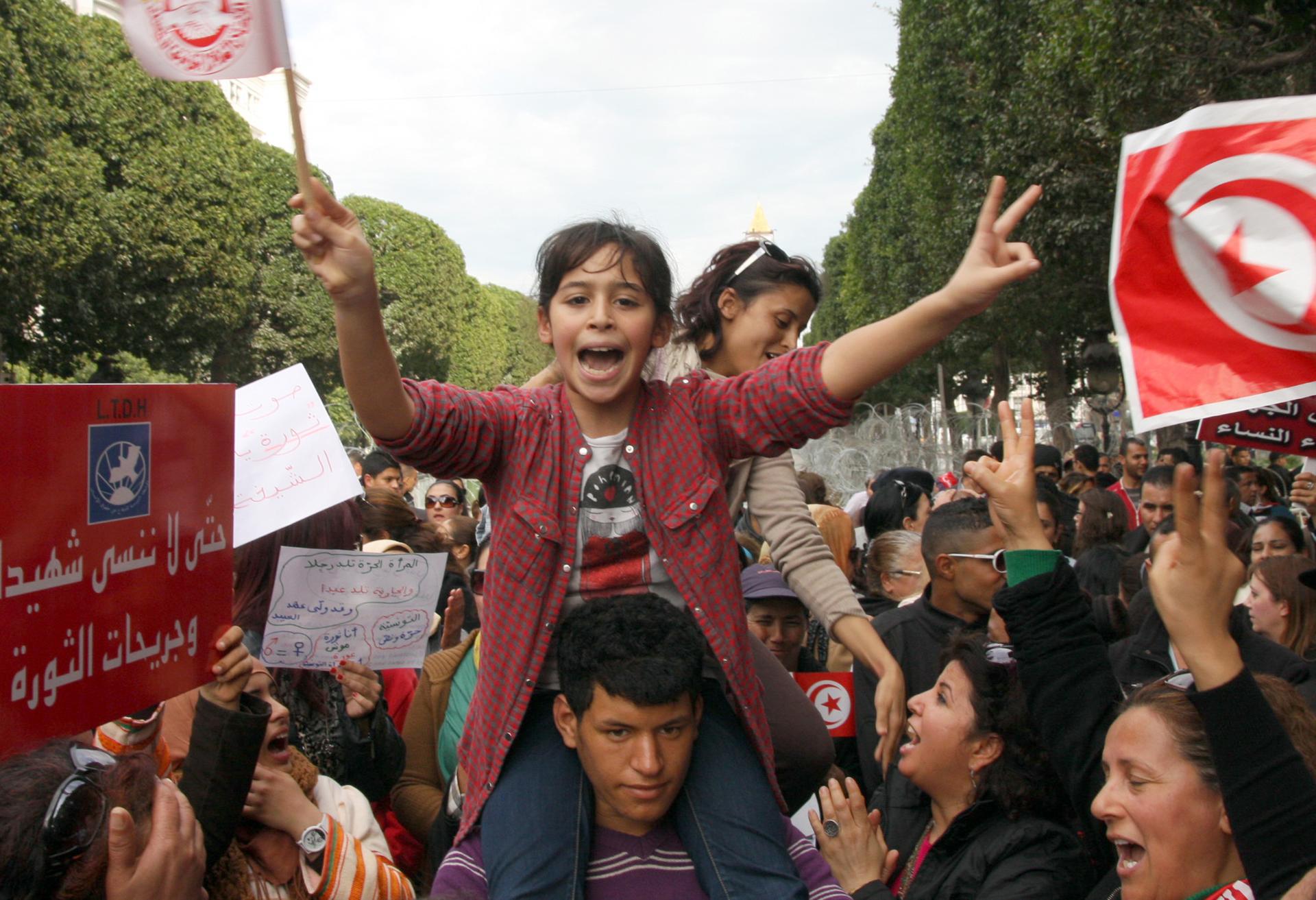Tunisian man self-immolates ahead of vote to break political crisis
A Tunisian young girl flashes the sign of victory shooting slogans during a demonstration on March 9, 2013 in Tunis.
A street vendor set himself on fire in central Tunis hours before lawmakers were to vote on a new government to pull the country out of a deep political crisis.
The uprising in the North African country — which provoked similar uprisings around the Arab world, known as the "Arab Spring" — was widely attributed to the 2010 self-immolation of another Tunisian vendor, Mohamed Bouazizi.
The Associated Press reported a witness who heard the man, a 27 year-old cigarette vendor, as yelling:
"This is a young man who sells cigarettes because of unemployment. Allahu Akbar! [God is greatest!]"
He then torched himself on a street in the capital that was central to the 2011 uprising that toppled ex-dictator Zine El Abidine Ben Ali, Habib Bourguiba Avenue.
Bouazizi, 26, who earned about $10 a day selling fruit, set himself alight on Dec. 17, 2010 in the town of Sidi Bouzid in protest after a policewoman confiscated his cart.
He died in the same hospital where the 27-year-old vendor was taken on Tuesday.
After security forces and bystanders doused the flames, the young man was rushed to hospital suffering third-degree burns, CNN reported, citing Tunisia's national civil protection and civil defense authorities.
He was reportedly in critical condition, with burns to 90 percent of his body.
Agence France-Presse cited a hospital source as saying he was "in a critical condition and only his feet were not burned."
According to AFP, the same economic and social difficulties that led to Ben Ali's ouster have continued to plague Tunisia.
The young man’s self-immolation in Tunis today is yet another reminder of the social toll of Tunisia’s stalled political and economic reforms, and of the failure of the country’s two main parties to reach any sort of consensus on governing.
Even as the country’s parliament voted on another timetable for transition, – including the formation of a new cabinet after the last government was dissolved amid political turmoil – the moves were not enough to quell the desperation now so prevalent among Tunisia’s youth.
Unemployment, a key catalyst for Tunisia’s uprising in 2010-2011, remains high, particularly among young graduates.
Tunisia’s new cabinet may agree on the broad outlines of an ongoing democratic transition. But without the implementation of concrete policies, the poverty and desperation will probably deepen.
Every day, reporters and producers at The World are hard at work bringing you human-centered news from across the globe. But we can’t do it without you. We need your support to ensure we can continue this work for another year.
Make a gift today, and you’ll help us unlock a matching gift of $67,000!
